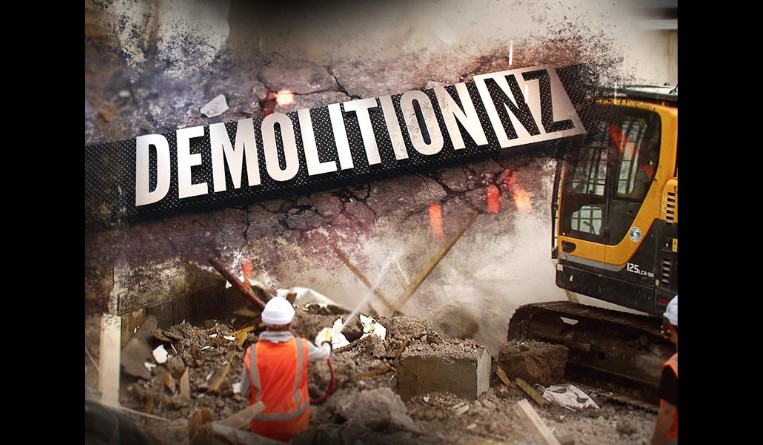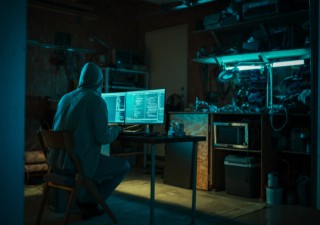Reality TV shows in copyright infringement skirmish
05 August 2021
 Image credits: Amazon
Image credits: Amazon
The producers of “Demolition NZ,” a reality TV show from New Zealand, has accused the producers of Australian TV program “Demolition Down Under” of copyright infringement.
Both reality TV shows chronicle demolition crews as they go around doing their job, taking TV audiences onsite as the workers deal with collapsed structures, crumbling walls and falling floors.
There haven’t been any new episodes of “Demolition NZ,” aired on Prime/Sky until last year, and filming for new episodes has not begun.
Negotiations with TV3/Discovery started but nothing was finalized. TV3 is a New Zealand TV channel which was acquired by Discovery in December 2020.
A few weeks later, “Demolition NZ” producer Jeff Hampton learned about the Australian reality TV show by WildBear Entertainment. WildBear owns the copyright to “Demolition Down Under.”
An article in Newsroom reported that according to Hampton, “Demolition Down Under” has the same look, graphics and structure as “Demolition NZ,” aside from an almost similar name. This makes it harder for their group to seek funding from NZ on Air since there is now another reality show on TV that strongly resembles theirs. NZ on Air provides funding for broadcasting and creative works.
After receiving a letter from Hampton’s lawyers about the copyright infringement allegation, TV/3 Discovery is now investigating the matter. In the letter, Hampton’s group requested that “Demolition Down Under” be taken off the air.
“Traditionally, the content of a TV show - as distinct from the recording/communication of it - has attracted copyright as a dramatic work – effectively for the written content of the show’s script,” said Matt Toulmin, a barrister at Mills Lane Chambers in Auckland.

However, being reality TV shows, “Demolition Down Under” and “Demolition NZ” do not involve any script. As such, traditional copyright analysis for the case, if any, will be more difficult because of the absence of an identifiable script to protect. According to Toulmin, this isn’t unique as courts have grappled with these issues, including for cases involving game shows.
“I would expect the plaintiff in this case to rely on a line of authority which includes the 1989 Privy Council decision of Green v. New Zealand Broadcasting Corporation,” Toulmin said. The case considered the game show “Opportunity Knocks.”
“The plaintiff’s dramatic work copyright case could therefore stand or fall at the first hurdle of identifying those features which are clearly defined and distinguishable from others in the market, which exist together in a cohesive framework. The plaintiff will need to identify what aspects of “Demolition NZ” are the result of its independent skill, labour and judgment – that being the touchstone for identifying originality of a work and therefore subsistence of copyright.”
If the plaintiff can establish the originality of its dramatic work and thus, is eligible for copyright protection, the next question is whether the defendant has copied the plaintiff’s work in the process of creating “Demolition Down Under.”
“In this case I would expect that the plaintiff will undertake a careful comparison of the two shows to pull out the similarities. The defendant will instead focus on the differences and will likely also seek to argue that the alleged similarities are not similar at all, are commonplace or otherwise dictated by necessity and not aspects that the plaintiff ought to be able to rely on to demonstrate copying,” explained Toulmin.
“This is where the evidence of independent creation will fit in,” he added. “While the two shows may share objective similarity, the defendant may be able to establish that there was an independent creative path that does not refer to the plaintiff’s work and that any alleged similarities are merely coincidental and/or dictated by the general nature of the show.”
WildBear’s CEO Michael Tear did say the similarities were coincidental.
Tear told Newsroom that “Demolition Down Under” is based on an original concept by WildBear.
“Any alleged similarity by Mr. Hampton between “Demolition Down Under” and “Demolition NZ” is entirely coincidental,” he said.
“Finally, there will be an assessment of whether a substantial part of the plaintiff’s copyright in “Demolition NZ”has been used by the defendant and deployed in “Demolition Down Under.” This is a qualitative, not quantitative, assessment which looks to identify whether those aspects of the plaintiff’s work copied by the defendant represent the skill, labour and judgment that the plaintiff exerted in creating the original work,” Toulmin said.
Whatever the outcome or judgement in the resulting court case, if any, is likely to shed light on specific aspects of reality TV shows that are crucial in determining whether they are eligible for copyright protection as dramatic works.
“If the plaintiff is ultimately successful in this case, the judgment will in effect provide future litigants with a checklist of relevant evidence that should be advanced in similar cases. The case will influence New Zealand law and, because of the similar approaches taken to copyright in Australia and the United Kingdom - all the more so since Brexit - may also be influential in those jurisdictions,” said Toulmin.
Espie Angelica A. de Leon






